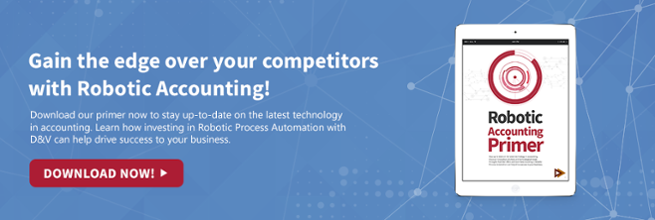How to Prepare Your CFO for Robotic Process Automation

Let’s face it, CFOs are actually not the most technologically progressive leaders in the business world. Their role in ensuring that everything in the finance and accounting department is in order makes them averse to changes in the process, especially when there is already one in place.
Thus, it is not surprising that there are CFOs who are not particularly warm with the thought of robotic process automation (RPA) in accounting. This innovation brings in too many changes that it can be too suspicious for them.
However, if you’re planning to implement robotic accounting in your organization, you’ll need to get the support from your CFO. Otherwise, you may end up disagreeing on certain points, causing your process to slow down rather than improve thru robotic accounting. To do so, here are some points that you may want to keep in mind once you discuss RPA with your CFO:
-
The CFO must see benefits beyond overhead cost reduction
Here’s a common misconception when we think about robotic accounting: automation = lower overhead costs. While there are some truth in this statement, a CFO must go beyond this to fully appreciate RPA.
Robotic accounting does not automatically enable you to decimate the number of your employees by half. A better use of the technology is to allow it to take over time-consuming and repetitive tasks from your employees. This will allow you to use the capabilities and skills of your employees too much more valuable roles that involve human intuition such as leadership, decision-making, and in-depth analysis.
-
RPA allows for faster regulatory satisfaction
Another benefit that can pique the interest of CFOs is the application of robotic accounting to satisfy regulators. Most systems are expected to come with an audit integral trail, that, as the name suggests, enables you to manage transactions and keep an audit trail of what you are doing at the same time.
Just like what Paul Mills of EY stated in a report published by the ACCA, this feature may even become mandatory as he knows of some financial services firm that was able to get quick sign-offs from regulators using automated processes.
-
RPA allows for fast and accurate management decisions.
Something that your CFO will surely benefit from is the fact that RPA will enable them to make more accurate and faster decisions. With RPA, a CFO can optimize your financial key performance indicators and consolidate them automatically, thereby giving him/her more accurate data in less time, from which important management decisions can be based.
-
Robotic Accounting reduces your operational risks.
As processes become automated, robotic accounting ensures that you do not miss important payment deadlines, crucial errors, and avoid penalties altogether. Robotic process automation also allows you to set up the check and balance systems to ensure that data, transactions, and other processes that you automate abide by important regulations and organizational quality assurance policies.
Keep in mind that discussions as important as implementing robotic process automation in accounting may take time than what you initially expect. Placing yourself in the shoes of the other person and understanding their fears and needs will help you understand their reservations, and address these points with the proper facts.
In need of more information about robotic process automation? Download our Robotic Accounting Primer and know the other benefits of robotic accounting and how you can prepare your business for this break-through! Click the button below to get your copy today.




